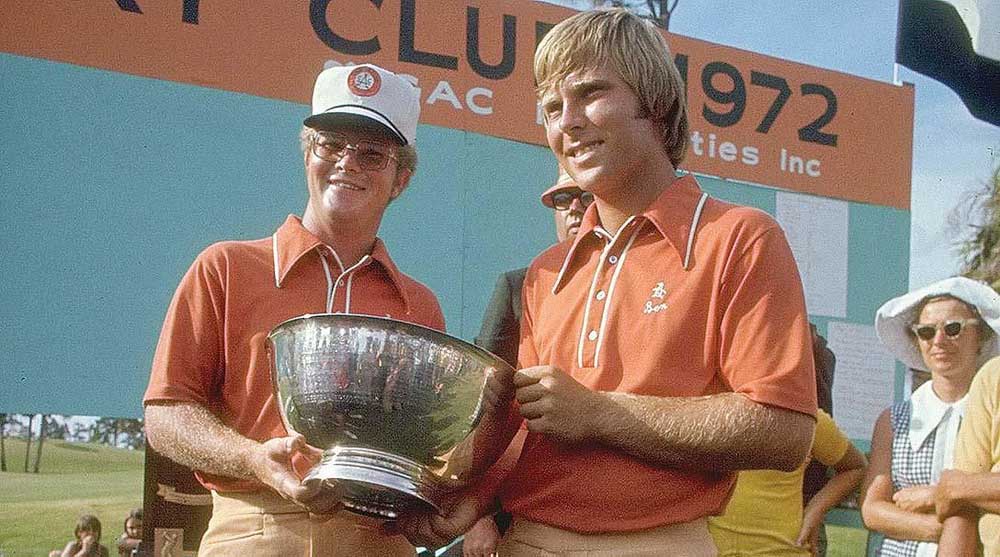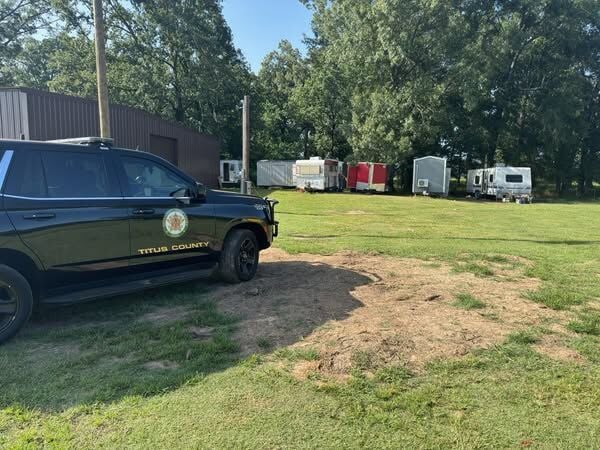Crenshaw’s class act looms large in Texas athletic lore
Published 4:55 am Sunday, July 22, 2018

- UNIVERSITY OF TEXAS TEAMMATES Tom Kite (left) and Ben Crenshaw shared NCAA medalist honors in 1972.
Editor’s Note: This is the third of a four-part series featuring former winners of the Tanos Exploration II/Patterson-UTI Drilling Texas State Open to be played at The Cascades Golf & Country Club July 31 through Aug. 3 in Tyler.
When the Tanos Exploration II/Patterson-UTI Texas State Open returns to The Cascades July 31-Aug. 3, it will mark the 48th playing of an event that has an illustrious group of former winners. The list contains legends such as Lee Trevino and Jackie Burke, but is highlighted by a Texas golfing icon from Austin — Ben Daniel Crenshaw.
Crenshaw, who rose to golfing prominence as a young amateur in the early 1970s, won the Texas State Open three times between 1975 and 1980. He is one of three players to have won it three times, joining Kelly Grunewald and Jeff Maggert. All three Crenshaw wins came at the still popular Horseshoe Bay Resort near Marble Falls in the heart of the Texas Hill Country.
Most golf fans know he won the Masters in 1984 and 1995 but may be unaware of Crenshaw’s superb amateur record that included three straight NCAA individual titles on two University of Texas national championship teams. His third straight individual win was shared with teammate Tom Kite, also of Austin, who went on to have a pro career equal that of Crenshaw’s.
Several years ago, a call came into a
Dallas golf radio show singing the praises of Jordan Spieth. And rightfully so, since Spieth, a local hero, had thrilled the golf world that year with wins at the Masters and U.S. Open and a close call at the British Open going for three majors in a row.
The caller emphatically said, “We have just never seen anyone this young and this good,” referring to the 21-year-old Spieth.
Not too wisely, perhaps, but reflexively was the radio host’s comeback. “I remember a young Ben Crenshaw who was every bit as good about 40 years ago.”
There was an awkward silence on the other end of the phone followed by a tepid, “OK, whatever,” and then CLICK.
Spieth is deserving of such praise but Crenshaw was every bit the child prodigy.
Now 65 and busy as a golf course architect, Crenshaw no longer plays much. Yet it isn’t difficult to remember his wonderful play as a junior golfer when he shot something like 20 under for 72 holes to win the state junior at Brackenridge Park in San Antonio. And though he won 19 times on the PGA Tour with the two majors, some consider those accomplishments slightly disappointing in light of an amateur record second only to the great Bobby Jones, who of course co-founded the Masters with Clifford Roberts.
My first sighting of Crenshaw was on a hot July day in 1968. It was at the public course in Abilene for the Texas State Jaycees tournament. He won the event over his friend Bruce Lietzke and then went on to win the Jaycees tournament later that summer in Tulsa, Oklahoma.
Checking in at the golf shop that day, something compelled me to glance over my right shoulder. This guy with blond hair was walking casually toward me carrying the prettiest baby blue golf bag I had ever seen. It was a Burton bag, all leather. Those bags were the rage then and manufactured in Jasper, Alabama. Guys like me didn’t have a Burton bag.
In the summer of 1968, Crenshaw was already a legend. I didn’t speak to him because I was so much in awe, but time goes by quickly and in just the past few years, I have had the chance to interview him on several occasions.
When interviewing Crenshaw for a book about the old beer and barbecue tournaments of East Texas, I mentioned that baby blue Burton golf bag over the phone and heard him chuckle.
“Oh man, of course I remember that bag,” he said to my astonishment. “I always like to see what kind of equipment guys are using. I notice things like that.”
Crenshaw won that tournament in Abilene with an unbelievable up and down on the next to last hole. Like other champions, he was always able to make the crucial putt when he needed it.
One of the great things about Crenshaw is that in many ways he is still that 16-yearold boy I once saw in Abilene. He seems unaffected by celebrity.
“The thing about Ben is that he has no ego,” Lietzke once told me.
His wins at the state open in 1975, ’76 and ’80 came when the event was played in the late fall and Crenshaw was home from the tour. Horseshoe Bay is only an hour or so from Austin, making those tournaments convenient.
Lietzke also told me that his greatest moment on a golf course came when he wasn’t even playing. Instead he was an assistant captain to Crenshaw, along with his good friend Bill Rogers of Texarkana, at the 1999 Ryder Cup won so dramatically by the Americans. Significantly behind going into the Sunday singles matches, the USA came roaring back for a remarkable win led by Hal Sutton of Shreveport, Louisiana.
I interviewed Crenshaw again several years ago in Dallas when he was honored at a huge fundraiser for MD Anderson Cancer Center. He was as gracious as ever. Before I left, I asked him if he would call a friend who was recovering from a horrible car accident.
It was a lot to ask of someone in his position, but a month or so later Jimmy Wheeler of Tyler received that call and the two men visited for almost an hour. They talked about the Texas-Oklahoma Junior Tournament they played in together in 1970. It lifted Wheeler’s spirits immensely and I’m sure Crenshaw enjoyed the conversation.
Wheeler passed away in July of last year but had a positive effect on so many people because of his Christian attitude in the wake of his suffering.
“We had a lot of fun talking,” Wheeler told me at the time. “I reminded Ben that we were in that last group at the T-O Junior and on an early hole he was pitching off this unbelievable hard pan with water behind the green and hits a sand wedge shot that lands by the hole and doesn’t roll a foot. Amazing. Then later he has a similar shot and takes out a 5-iron and hits a pitch and run up there for a tap-in.
“I told him that the next time he had a pitch shot, I’ll just pick the club because it really doesn’t matter.”
With that, Wheeler began to laugh and I did too.






